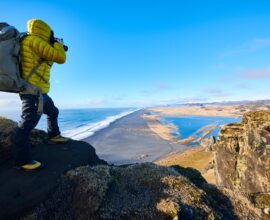When most people picture an African safari, their minds instantly go to lions, elephants, rhinos, buffalo, and leopards. But what if the real magic lies in spotting the less talked-about creatures? For travellers from the UK seeking more than the classics, African safari tours offer encounters with fascinating animals that rarely make the headlines but leave an equally lasting impression.
Why Look Beyond the Big Five?
The Big Five are undoubtedly iconic, yet Africa’s landscapes teem with biodiversity that often gets overshadowed. In fact, Africa is home to over 1,100 mammal species and more than 2,600 bird species (World Bank). By broadening your focus, you not only deepen your safari experience but also contribute to the conservation of lesser-known species that are just as vital to the ecosystem (Source).
Rare Animals Worth Spotting
The African Wild Dog
Known for its mottled coat and oversized ears, the African wild dog is one of the most endangered predators on the continent. With fewer than 6,000 left in the wild, encountering a pack in Botswana or Tanzania feels like stumbling upon a secret world.
Pangolins – The Armoured Wanderers
These shy, nocturnal mammals are covered in protective keratin scales, giving them a dragon-like appearance. They’re notoriously difficult to spot, but in reserves like South Africa’s Tswalu, lucky visitors might catch one foraging at dusk.
Servals and Caracals
While leopards steal the spotlight, their smaller cousins—the serval and caracal—are equally mesmerising. Servals, with their long legs, stalk in grassy wetlands, while caracals impress with their powerful leaps and tufted ears.
Aardvark Adventures
The name means “earth pig” in Afrikaans, but this burrowing insect-eater looks more like a creature from a children’s book. Mostly nocturnal, they’re spotted in drier areas like Namibia—if you have the patience and a bit of luck.
Birds Beyond Imagination
- Shoebill Stork – Found in Uganda’s wetlands, its prehistoric look is unforgettable.
- Southern Ground Hornbill – With striking red facial skin, these are easy to hear before you see them.
- Lilac-breasted Roller – A splash of pastel blues and purples, considered one of Africa’s most photogenic birds.
Making the Most of Your Safari
Spotting rare wildlife isn’t always about luck; preparation plays a role. Consider night drives, specialist guides, and visiting less crowded reserves. When planning your African wildlife safari, it’s wise to choose operators who prioritise sustainable practices and tailor experiences to enthusiasts who want more than “just the big five.”
Expert Tips to Increase Your Chances
- Travel Off-Peak: Shoulder seasons often mean quieter reserves, giving you space and time to enjoy elusive sightings.
- Pack Smartly: Essentials like binoculars, neutral clothing, and a field guide can make or break your safari—see the Top 5 Things to Pack for Your Upcoming African Adventure.
- Be Patient: Unlike staged encounters, safari magic often happens when you least expect it—so linger, observe, and let the bush surprise you.
FAQs on Rare Safari Sightings
1. Are rare animals harder to see than the Big Five?
Yes, many rare species are nocturnal or shy, making them trickier to spot. However, with the right guide and destination, your chances improve significantly.
2. Which African countries are best for spotting unusual wildlife?
Namibia, Botswana, and Uganda are top contenders. Each offers unique habitats where rare animals like aardvarks, wild dogs, and shoebills thrive.
3. Do rare animal safaris cost more?
Not always. While some specialist tours are premium-priced, many mainstream safaris naturally include opportunities to see unusual species at no extra cost.
4. Is night safari safe?
Yes, when organised by licensed operators. Night drives often increase your chances of spotting rare nocturnal animals like pangolins or aardvarks.
Final Thoughts
For UK travellers seeking adventure with a twist, focusing on rare species adds depth to your safari story. Beyond the lions and elephants, it’s the moments of spotting an aardvark shuffling through the sand or a wild dog on the hunt that will make your journey truly unforgettable.





